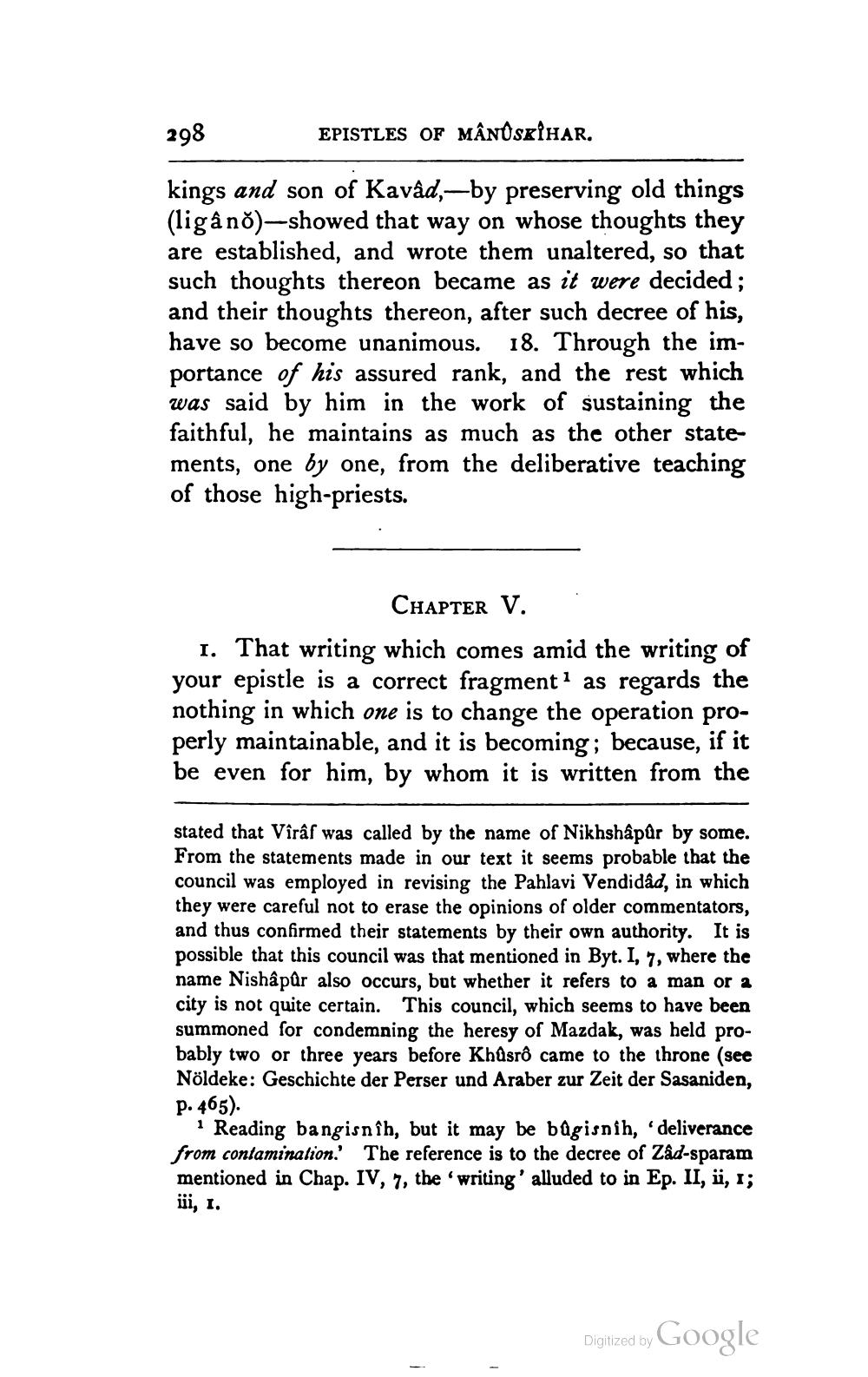________________
298
EPISTLES OF MÂNUSKİHAR.
kings and son of Kavad,—by preserving old things (ligâno-showed that way on whose thoughts they are established, and wrote them unaltered, so that such thoughts thereon became as it were decided; and their thoughts thereon, after such decree of his, have so become unanimous. 18. Through the importance of his assured rank, and the rest which was said by him in the work of sustaining the faithful, he maintains as much as the other statements, one by one, from the deliberative teaching of those high-priests.
CHAPTER V. 1. That writing which comes amid the writing of your epistle is a correct fragmenta as regards the nothing in which one is to change the operation properly maintainable, and it is becoming; because, if it be even for him, by whom it is written from the
stated that Vîraf was called by the name of Nikhshâpôr by some. From the statements made in our text it seems probable that the council was employed in revising the Pahlavi Vendidad, in which they were careful not to erase the opinions of older commentators, and thus confirmed their statements by their own authority. It is possible that this council was that mentioned in Byt. I, 7, where the name Nishấpûr also occurs, but whether it refers to a man or a city is not quite certain. This council, which seems to have been summoned for condemning the heresy of Mazdak, was held probably two or three years before Khasrô came to the throne (see Nöldeke: Geschichte der Perser und Araber zur Zeit der Sasaniden, p. 465).
1 Reading bangisnih, but it may be bagisnih, 'deliverance from contamination. The reference is to the decree of Zad-sparam mentioned in Chap. IV, 7, the writing' alluded to in Ep. II, ü, 1; iii, 1.
Digitized by Google




